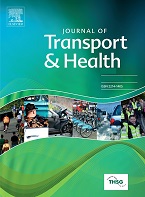Who wants to change their transport habits to help reduce air pollution? A nationwide study in the caribbean
- Authors: Francisco Alonso, Mireia Faus, Cristina Esteban, Sergio Useche (2023).
- Publication types: Article
- URL Publication: Who wants to change their transport habits to help reduce air pollution? A nationwide study in the caribbean
- Publication Title (name of the book or magazine): Journal of Transport & Health. No.33:101703
-
Abstract:
Given its detrimental role in sustainability and community health, air pollution constitutes a global challenge nowadays, and urban transport has been proven to be a key contributor to the problem. At a population level, and especially in Low- and Middle-Income Countries (LMICs), measures for reducing contamination usually require deep behavioral changes and “sacrifices” among individuals who may (or may not) be willing to modify their habits. Objective: This research, conducted in the Dominican Republic, aimed to assess the effect of individual factors, transport habits, and pollution-related concerns on the individual’s will to act to reduce air pollution. Methods: For this study, we counted on the participation of a nationwide sample of 1250 adult Dominican citizens (50% females; 50% males) with a mean age of 36.7 years. Results: Overall, Dominicans tend to self-report a considerably high concern about transport air pollution, especially among women and inhabitants of urban areas. The willingness to act was significantly influenced by demographic factors, travel frequency, and pollution-related concerns. Also, both individual and socially perceived environmental concerns exert a statistical mediation between individual factors and the self-reported predisposition to help reduce pollution through behavioral changes. Conclusions: The results of this study suggest that both individual and social pollution-related concerns influence the personal willingness to act against air pollution, although in different ways. Interestingly, while peoples’ own concerns increase their willingness to act, solely perceiving a greater collective concern seems to dispirit individuals’ will to take further action. Accordingly, developing further individual and collective initiatives to increase pollution-related responsiveness could be essential to face this growing problem in the Dominican Republic and the Caribbean.
DOI: 10.1016/j.jth.2023.101703ISSN: 2214-1405










